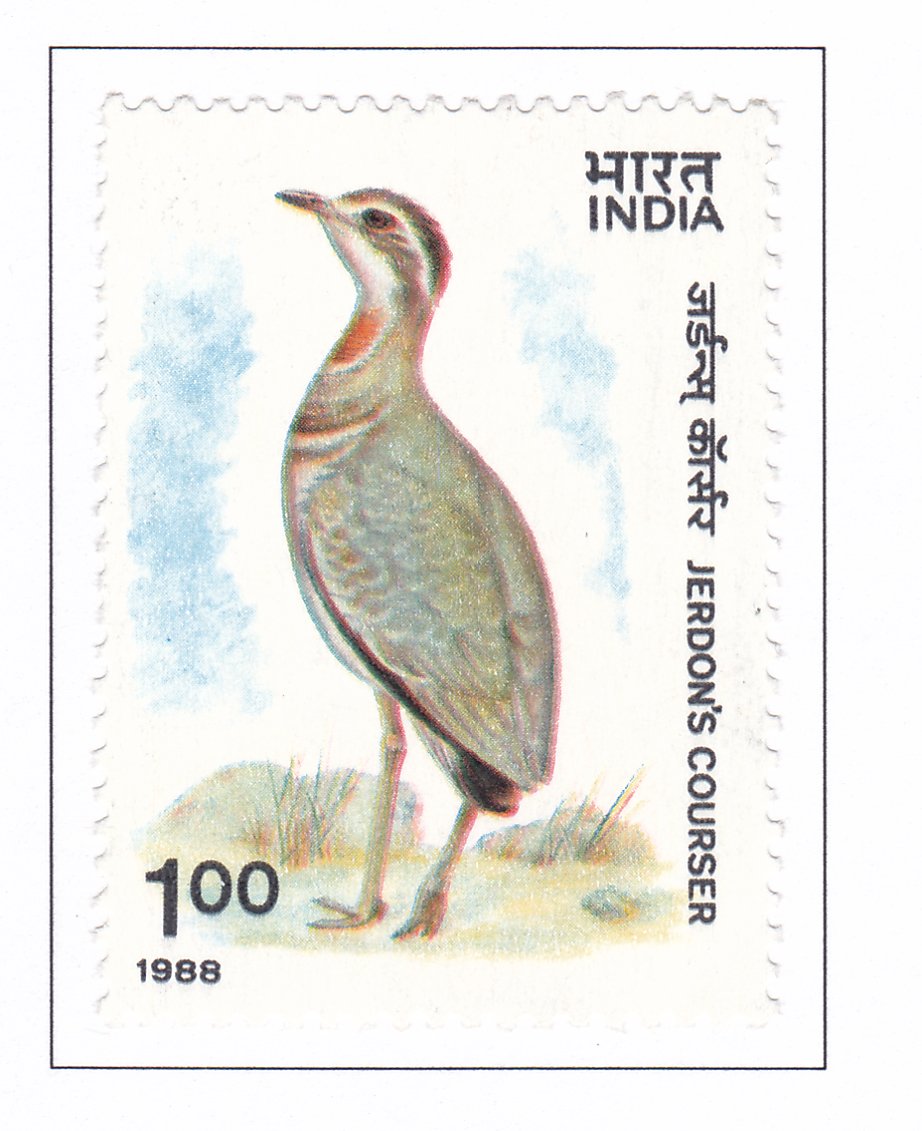Jerdon’s Courser (Rhinoptilus bitorquatus)

Technical Data
| Date of Issue | October 7, 1988 |
|---|---|
| Denomination | Rs. 1 |
| Quantity | 1,500,000 |
| Perforation | comb 13 x 13½ |
| Printer | Security Printing Press, Nashik |
| Watermark | No Watermark |
| Colors | Multicolor |
| Catalog Codes |
Michel IN 1183 Stamp Number IN 1244 Yvert et Tellier IN 996 Stanley Gibbons IN 1332 |
| Themes | Animals (Fauna) | Birds |
Wildlife 1988: Honoring the Jerdon’s Courser and Dr. Salim Ali
The Jerdon’s Courser:
- Scientific Name: Cursorius bitorquatus
- Rarity: One of the rarest birds globally, presumed extinct before its rediscovery in January 1986 by the Bombay Natural History Society.
- Historical Records: Last recorded in 1900, despite numerous expeditions since the 1930s.
- Habitat: Known only in the Pennar River valley (Anantpur, Cuddapah, and Nellore) and the Godavari River valley (Bhadrachalam and Sironcha) in Andhra Pradesh.
- Physical Description:
- Upper Plumage: Pinkish sandy brown with a dark brown crown and hind neck.
- Facial Markings: Broad whitish supercilium looping around the nape.
- Underparts: Whitish chin and throat, rufous foreneck separated from the brown breast by a white band, second white band across the lower breast.
- Tail and Wings: Whitish underparts with a white and black tail and a prominent white wingbar visible in flight.
- Behavior: Inhabits thorn scrub country, crepuscular, and nocturnal.
- Discovery: Named after Dr. T.C. Jerdon, who discovered it in 1848.
- Conservation Symbol: Represents the success of persistent conservation efforts.
Dr. Salim Ali:
- Legacy: India’s most distinguished ornithologist, naturalist, and conservationist.
- Contributions: Authored numerous books on ornithology and played a significant role in wildlife conservation.
- Awards and Honors:
- National: Padma Bhushan and Padma Vibhushan.
- International:
- IUCN’s ‘John C. Phillips Gold Medal’
- ‘Golden Oak’ from Prince Bernhard of the World Wildlife Fund
- India’s National Award for Conservation (1983)
- Nomination to the Rajya Sabha (1986)
- J. Paul Getty International Prize for Wildlife Conservation (1976), converted into the Salim Ali Fund for Conservation.
- Impact: Dr. Ali’s work received recognition both in India and abroad, highlighting his dedication to ornithology and conservation.
Material Courtesy:
Bombay Natural History Society & WWF
